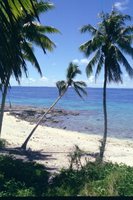 Leaders from the Pacific are meeting to renew their efforts against Tuberculosis in Oceania. Sadly it seems there is much work to be done.
Leaders from the Pacific are meeting to renew their efforts against Tuberculosis in Oceania. Sadly it seems there is much work to be done.… Dr Rodgers highlighted a disturbing trend in TB rates among central Pacific Island countries with a 33% rise in all types of TB between 2000 and 2005. The largest percentage increases in annual rates were observed in Federated States of Micronesia, Kiribati and Solomon Islands. The rate for all types of TB among women has gone up by 32% in the last 6 years, mostly in women of reproductive age. Women made up almost half of all infectious TB cases reported between 2000 and 2005; 30% of them were in the 15–24 age group.
More info here.
Supporters of Habele, and its drive to promote academic accomplishment among the impoverished Outer Islanders of Micronesia, should note that researchers continue to identify correlations between educational attainment and decreased levels of infection.
The belief that tuberculosis is incurable engenders a sense of fatalism, which deters discussion and treatment-seeking. A low educational attainment is associated with delayed treatment seeking for tuberculosis and failure to complete treatment. Conversely, maternal literacy is associated with better rates of case notification of tuberculosis and early treatment-seeking.






